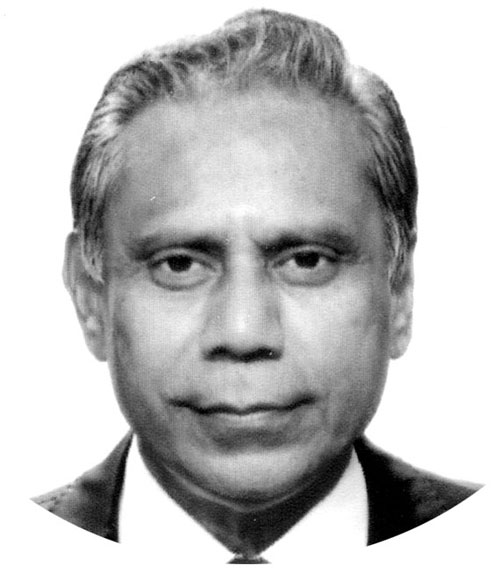Who is nudging Pakistan & India towards peace talks ?
THE last few years have been the most volatile in the history of Pakistan-India ties. Perhaps the possession of nuclear weapons constrained the two from engaging in all-out conflict but incessant ceasefire violations across the LoC, false flag operations from India and surgical strikes in their wake brought the two on the verge of a deadly war on numerous occasions.
August 5, 2019 illegal annexation of Indian Occupied Kashmir, apparently closed the doors of negotiations. The last few weeks have brought a sea change to the acerbic environment.
First, the military leadership of Pakistan and India jointly announced the implementation of the 2003 ceasefire agreement, bringing an end to the non-stop bombardment across the LoC.
Last week, Indian Prime Minister Narendra Modi’s tweet to his Pakistani counterpart Imran Khan, wishing him recovery from the Coronavirus is being seen in the context of these efforts.
The signs of improvement in recent days following the ongoing tension between Pakistan and India, did not stop here.
Prime Minister Narendra Modi has written a letter to his Pakistani counterpart Imran Khan extending greetings to people of the country on the occasion of Pakistan Day, expressing India’s desire of seeking cordial ties with Pakistan.
On Pakistan Day itself, the Indus Water Commissioners of the two countries met face-to-face in New Delhi after a two-year delay, signalling the beginning of the resumption of bilateral relations between the two countries.
The question arises, who is nudging the two erstwhile hostile neighbours towards mending their fences and engaging with each other.
Analysts say the improvement in relations between traditional rivals is due to the behind-the-scenes role of Saudi Arabia and the United Arab Emirates.
Independent observers opine that the role of a third party in improving relations and resolving issues between the two countries is positive, because in the past the efforts of the two countries to get closer to each other have failed.
A number of caveats impede the building of optimism towards achieving lasting peace since the process has stalled several times in the past.
The core issue remains the festering two countries appear to be moving towards a solution to the Kashmir dispute.
Indian imbroglio of Kashmir and the talks will be considered fruitful only when the principled position on Jammu and Kashmir while simultaneously consolidating its steps in the wake of its August 5, 2019 action have been to weaken Pakistan’s Kashmir.
Therefore, the leadership of Pakistan has to be cautious and position in Kashmir by changing the demographic status of Illegally Indian Occupied Kashmir see how serious India is in resolving the Kashmir issue.
Some Indian analysts, like the Council for Indian Foreign Policy Chairman Dr VP Vaidik, are still drowned in the mire of their oft-parroted narrative.
According to Dr Vaidik, the Kashmir solution cannot be found in accordance with the UN resolution because it is too old to be implemented.
Therefore, Imran Khan and Narendra Modi should take forward the four-point solution agreed upon by Pervez Musharraf and Manmohan Singh.
He opines that in order to resolve the Kashmir dispute, the two countries would have to take a middle path, which he said was paving the way. Dr. Vaidik suggested that if Pakistan and India take a middle path on the Kashmir issue and open the Central Asian route, it would be a decision for the development of South Asia.
He said the U.S. was compelled to seek better relations between India and Pakistan because it wanted the withdrawal of troops from Afghanistan, for which it was also in talks with Iran and Russia.
However, he said that big countries have their own interests so Pakistan and India should not rely on the U.S. or any other power to improve their personal relations.
In the context of restoring relations, the Foreign Ministers of Pakistan and India will attend an international conference in Tajikistan later this month.
It is being speculated that Indian Foreign Minister S Shankar may meet his Pakistani counterpart Shah Mehmood Qureshi on the occasion.
It is possible that the U.S. may have asked Saudi Arabia and the UAE to move India and Pakistan towards the negotiations table, since the earlier offer of the then President Donald Trump to mediate between Pakistan and India had been declined by Narendra Modi.
It is no coincidence that only 24 hours after India and Pakistan unexpectedly announced the joint commitment to respect the 2003 cease-fire agreement, the top diplomat of the United Arab Emirates flew into New Delhi for a quick one-day visit.
Reportedly, UAE Foreign Minister Sheikh Abdullah bin Zayed and his Indian counterpart Subrahmanyam Jaishankar discussed behind closed doors the India-Pakistan cease-fire which was an important development in the secret talks brokered by the UAE that began months earlier.
Without being sanguine, one can assume that the cease-fire is only the beginning of a larger roadmap to forge a lasting peace between the nuclear weapons equipped neighbours, that jostle with each other over the flashpoint of Kashmir.
The next step in the process involves both sides reinstating envoys in New Delhi and Islamabad, who were pulled in after August 5, 2019; the pertinent question would remain, from which point would the talks resume? Would it be after India agrees to rescind its abrogation of articles 373 and 35A of its Constitution which gave special status to Kashmir or beyond that?
—The writer is retired PAF Group Captain and a TV talk show host.










